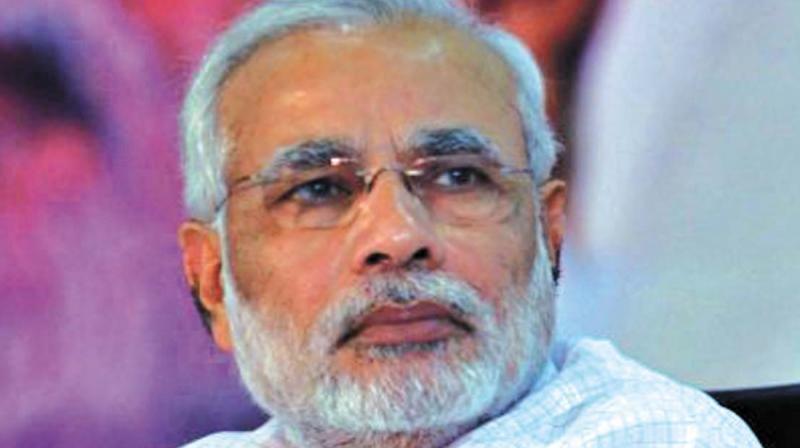A warm hug is no substitute for realpolitik
Saarc has not met after the 2016 summit was torpedoed in the wake of the terrorist attack on Uri.

I did not follow protocol. I am a simple man with no baggage. I made friends the world over ...” Thus spoke India’s Prime Minister Narendra Modi, master of the diplomatic hug fest, in a recent TV interview where he expatiated on what constitutes India’s foreign policy, or at least his understanding of it. “Every time I stand beside world leaders such as Vladimir Putin or Donald Trump, all I remember is that I am the representative of 1.15 crore citizens. They have given me the mandate to be there. Before 2014, the world didn’t care about what India had to say. But after we came to power in 2014, the situation changed completely. For the first time in 30 years, India has a government with a full majority. This was noticed by the entire world. I witnessed it during the Saarc and G-20 meet. They accept us as a leader now.”
Was that disingenuous or political hubris? With most of the neighbouring states even more hostile to India than they have traditionally been, India’s leadership even in its limited area of influence is under challenge. India’s domineering attitude and interference in their internal affairs, most markedly in the case of Nepal, has pushed them into China’s arms, leaving Mr Modi’s “neighbourhood first” policy in tatters. Maldives is the latest to thumb its nose at Delhi by signing a comprehensive free trade agreement with Beijing. Saarc has not met after the 2016 summit was torpedoed in the wake of the terrorist attack on Uri. The neighbourhood was meant to be the centrepiece of the so-called Modi doctrine and initially it did appear that the BJP would be able to assuage the wounds inflicted by Congress governments.
Nepal is the star failure for Mr Modi. A series of follies on the part of Delhi has left Kathmandu bristling — Delhi’s opposition to its new secular constitution is unlikely to be forgotten soon — while the election of a new communist coalition led by former Prime Ministers Pushpa Kamal Dahal and K.P. Sharma Oli is expected to push the country into a warmer embrace with China. Bhutan, Maldives and Sri Lanka have also moved out of New Delhi’s orbit and gravitated towards Beijing’s lure of economic assistance. Besides, strategic analysts say there is a sense of predictability in China’s policies that is missing in New Delhi’s capricious formulations. Pakistan continues to be kept at arm’s length although the recent disclosure that the national security advisers of India and Pakistan met secretly in Thailand end-December offers a ray of hope that talks would restart soon. New Delhi has not been able to respond to the events in Myanmar with any decisiveness.
Much of Modi doctrine is being conducted as a soap opera because the Prime Minister appears to think that state visits and hug fests are what constitute foreign policy. This is most apparent in the excessive bonhomie that marked the visit of Israeli Prime Minister Benjamin Netanyahu who visited India recently. The relationship with Israel is politically and ideologically dear to the BJP regime because of the empathy between Hindutva and Zionism in their commonly shared Islamophobia. Hindu fundamentalist leaders have been great champions of the creation of Israel and the man whose philosophy guides the BJP, M.S. Golwalkar of the RSS, was an unabashed admirer of Jewish nationalism although, ironically, he also extolled the ethnic cleansing unleashed by Nazi Germany in which six million Jews were killed. Personal diplomacy devoid of a strategic foreign policy with clear objectives is unlikely to bring any benefits to India or raise its international profile although it would certainly increase the PM’s list of friends. A hug, however warm, is no substitute for the realpolitik of international diplomacy
By arrangement with Dawn

